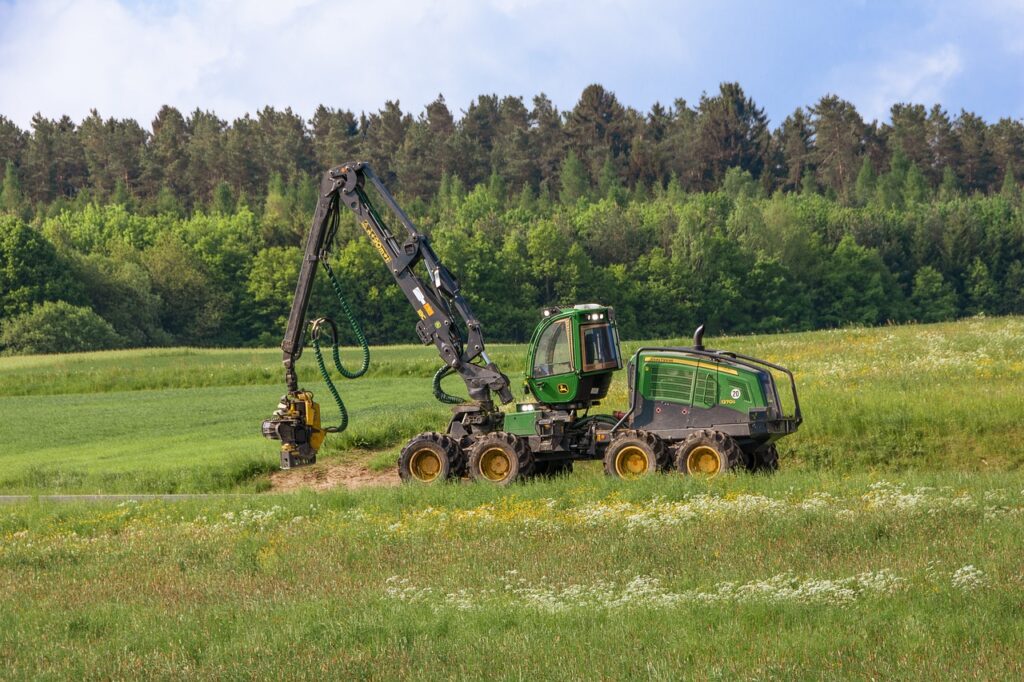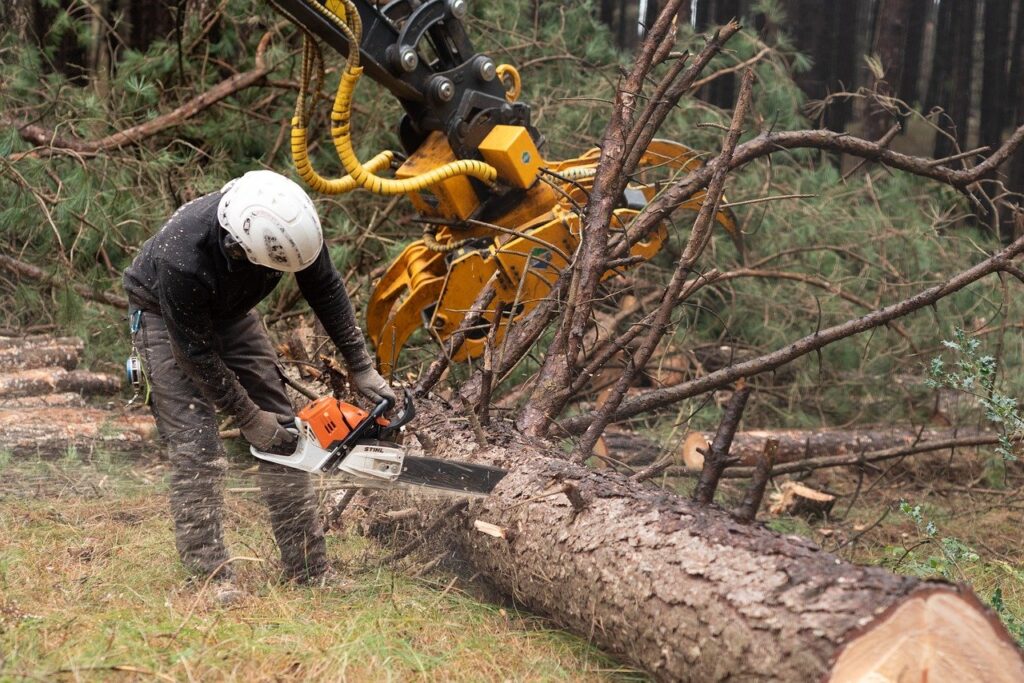Forestry, the art and science of managing forests, has evolved into a dynamic field with a wide array of rewarding careers. From the traditional roles of forestry management to emerging opportunities in wildlife conservation and urban forestry, this article delves into the top careers that define the landscape of the forestry sector.
Forestry Career Landscape
The forestry sector boasts a remarkable diversity of roles, each playing a pivotal part in the stewardship of our natural resources. The scope of careers extends far beyond the traditional image of a forester, encompassing a dynamic range of responsibilities that bridge the gap between nature and our society’s sustainable development.
In the heart of this sector lies fieldwork, the hands-on aspect that many associate with forestry. Fieldwork careers involve the active management and conservation of forests, with professionals often working on the frontline to monitor and protect these vital ecosystems. However, the roles within forestry also reach into the realms of conservation and environmental science, with dedicated individuals focused on protecting wildlife habitats and ensuring the health of forested landscapes.
Management roles in forestry merge administrative duties with a deep understanding of ecological principles. These professionals strategize and implement plans for forest sustainability, balancing economic objectives with environmental considerations. Their work is critical in guiding the use and preservation of forest resources for future generations.
With the rapid advancement of technology, forestry jobs now integrate cutting-edge tools and data analysis to enhance forest management practices. From Geographic Information System (GIS) specialists to remote sensing analysts, technology careers in forestry utilize the power of data to inform decision-making and policy development for forest conservation and land use planning.
Each career path within forestry contributes to a larger mission: the conservation of our planet’s forests and the promotion of a sustainable relationship between humanity and the natural world. It’s this blend of fieldwork, conservation, management, and technology that makes forestry careers not only diverse but also critical for our collective future.

Forestry Management Careers
At the heart of sustainable forestry, management careers are critical for overseeing the health and vitality of our forest ecosystems. Forestry managers are custodians of these natural resources, bearing the responsibility for planning, maintaining, and preserving forests. They play a pivotal role in balancing ecological needs with economic and social demands, ensuring the long-term sustainability of forested areas.
Embarking on a management career in forestry typically begins with specialized education. Aspiring forestry managers often pursue degrees in forestry, environmental science, or natural resource management. These programs equip students with the foundational knowledge of ecological principles, conservation practices, and resource management strategies. Advanced degrees may be sought for leadership positions, emphasizing strategic planning and policy development.
Essential skills for forestry managers extend beyond academic qualifications. They must exhibit adeptness in communication to liaise with government bodies, local communities, and industry stakeholders. Analytical skills are imperative for forest inventory assessment and data interpretation, while decision-making abilities guide them through complex conservation challenges.
Career advancement in forestry management can take many forms, from overseeing large tracts of public land to consulting on international forestry projects. Leadership roles may involve directing conservation programs, developing sustainable harvesting methods, or influencing policy at a governmental level. The path is ripe with opportunities for those committed to lifelong learning and environmental stewardship.
Wildlife Conservation and Biodiversity Specialists
The intersection of forestry and wildlife conservation opens a gateway to a host of fulfilling careers that play a crucial role in sustaining and managing our natural resources. Professionals in this sector are tasked with the dual responsibility of preserving forest ecosystems while also ensuring the survival of the diverse species that inhabit them.
Wildlife biologists stand at the forefront of this mission, conducting vital research on animal behaviors, habitats, and genetics to inform conservation strategies. Their work often requires a delicate balance of field studies and data analysis, necessitating a blend of robust outdoor skills and scientific expertise.
Similarly, conservation scientists dedicate their careers to protecting natural resources, including forests, and the biodiversity within them. They work collaboratively with governments, landowners, and various organizations to develop and implement management plans that aim to reconcile human activities with environmental stewardship.
These careers are not only essential for the health of our planet but also offer individuals the opportunity to engage with nature while making a positive impact on the environment. With the guidance and educational resources provided by Pathways to Advancement, those seeking to enter these careers can find affordable and relevant education options that equip them with the knowledge and skills required to excel in this noble field.

Forest Ecologists and Researchers
The field of forest ecology stands as a cornerstone in understanding the intricate balances within forest ecosystems. Forest ecologists and researchers play a pivotal role in uncovering how tree populations, wildlife, and environmental factors interact, providing data critical to the stewardship of our natural resources. The research conducted by these professionals not only advances our scientific knowledge but also informs conservation strategies and environmental policies, ensuring sustainable management practices are in place for future generations.
Career paths for ecologists and researchers in forestry are diverse, ranging from academic and governmental research positions to on-the-ground roles in conservation organizations. These professionals may focus on areas such as biodiversity, the impact of climate change on forests, or the development of sustainable resource management plans. Through their work, forest ecologists and researchers contribute to the development of environmentally sound policies, offering evidence-based recommendations that shape legislation and conservation efforts on a global scale.
As we delve deeper into the impact of these roles, it becomes evident that forest ecologists and researchers are not only guardians of the forest but also advocates for the environment. Their findings often serve as a catalyst for change, prompting action to protect endangered habitats and informing public discourse on environmental responsibility. As such, their influence extends beyond the forest boundaries, affecting societal views and leading the way for a more sustainable future.
Forest Engineering and Technology Careers
The intersection of forestry and technology represents a dynamic frontier that is continually evolving, offering an array of career opportunities to those interested in both fields. As we delve deeper into the 21st century, the emphasis on sustainable practices has never been greater, necessitating the integration of advanced technologies in forest management and conservation efforts.
Careers in forest engineering are pivotal, as they blend environmental science with engineering principles to develop and implement solutions for forest management challenges. Professionals in this domain are tasked with responsibilities that span the design and operation of forest-related machinery, the construction of infrastructure such as roads and bridges within forested areas, and the development of technology for efficient resource extraction that minimizes environmental impact.
The qualifications for a career in forest engineering typically include a bachelor’s degree in forestry engineering or a related field, bolstered by strong analytical skills and a proficiency in technology. Some roles may require advanced degrees or professional certifications, reflecting the complexity and technical nature of the work involved.

Advancements in technology, such as remote sensing, Geographic Information Systems (GIS), and drone usage, are reshaping the landscape of forestry careers. These technologies facilitate precise mapping, monitoring, and management of forest resources, making the work of forest engineers and technologists both cutting-edge and crucial for sustainable forestry practices.
The role of a forest engineer or technologist is not just about the immediate application of technology. It’s about envisioning a future where forests continue to thrive through the conscientious use of innovation – a future that requires the expertise and dedication of skilled professionals in forest engineering and technology careers.
Urban Forestry Specialists
As cities continue to expand, the need for green spaces becomes increasingly vital. Urban forestry plays a critical role in modern city landscapes by managing and preserving these urban green spaces. This field not only enhances the aesthetic appeal of our cities but also contributes to the well-being of communities by improving air quality, providing shade, and reducing the urban heat island effect. Professionals in urban forestry are at the forefront of designing, maintaining, and advocating for these important ecosystems within the urban matrix.
Exploring careers in urban forestry opens up a variety of opportunities for those who are passionate about the intersection of nature and city life. From urban foresters who oversee the health of city trees to arborists who care for individual trees, the range of roles is diverse. Landscape architects contribute to urban forestry by designing parks and green infrastructure that incorporate trees and vegetation, considering both beauty and functionality. Urban forestry managers and tree preservation officers work within municipal governments to develop policies and manage the urban canopy. These careers are instrumental in ensuring that urban dwellers have access to natural spaces and that urban biodiversity thrives amidst the concrete and steel of city environments.
For individuals looking to make a difference in the urban landscape, a career in urban forestry offers a rewarding path. It combines a passion for the environment with the satisfaction of contributing to the livability and sustainability of urban areas. As urban centers grow, professionals in this field will continue to be key players in shaping the future of our cities, making it a career path well worth considering for those drawn to a greener urban world.
Forest Products and Timber Industry
The forest products sector serves as a cornerstone of the global economy, fostering economic growth while also standing at the forefront of sustainable natural resource management. The timber industry, a vital component of this sector, encompasses a wide array of careers that extend from the initial harvest of trees to their final transformation into consumer products. It’s a realm where skilled laborers, technicians, engineers, and managers work in concert to balance economic output with environmental stewardship.
In the journey from forest to frame, each tree’s transformation into timber and other forest products provides job opportunities at every turn. Harvesters and loggers are the industry’s backbone, working at the source to selectively cut trees with precision and care. Their efforts are complemented by mill operators who process raw logs into planks, sheets, and various other forms of lumber, while quality control specialists ensure that the final products meet industry standards.

Yet, the scope of careers within the timber industry is not limited to the processing of wood alone. Researchers and developers are constantly seeking ways to innovate and utilize wood products more efficiently, contributing to a more sustainable future. Supply chain experts oversee the logistics, ensuring that the journey of wood products from forest to market is both cost-effective and environmentally sound. Meanwhile, sales and marketing professionals work to connect consumers with sustainable wood products, closing the loop of the forestry lifecycle.
The interweaving of economic objectives with ecological considerations is a delicate dance, and the timber industry plays a pivotal role in this balance. Sustainable forest management practices are at the heart of the industry, aiming not only to meet the current demand for wood products but to do so in a way that preserves forests for future generations. These practices include selective logging, replanting strategies, and adherence to strict environmental regulations, ensuring that forests continue to thrive as they support the industry.
Ultimately, careers in the forest products and timber industry are not just about the wood and the wealth it generates; they’re about maintaining the health of forest ecosystems while providing valuable resources. It’s an industry where professionals can build a career that supports both their livelihood and the planet.
Forest Fire Management and Prevention
At the heart of sustainable forestry lies the critical role of forest fire management and prevention. These efforts are not only essential in protecting our precious forest resources but also in safeguarding human lives and properties. The professionals dedicated to this challenging yet vital field are the unsung heroes who stand between the unpredictable wrath of wildfires and the well-being of our ecosystems.
Career opportunities within this specialized area span both fieldwork and administrative domains. On the ground, fire management specialists, fire ecologists, and wildfire fighters work tirelessly to control and mitigate the effects of fires. These roles require a profound understanding of fire behavior, weather patterns, and terrain. Additionally, administrative positions, such as fire prevention planners and policymakers, contribute to the strategic aspect of fire management, developing plans that help prevent fires or minimize their impact.
One of the most significant aspects of forest fire management is prevention education and community outreach. Engaging with communities, sharing knowledge, and equipping them with the necessary tools to reduce fire risks are just as important as the physical act of fighting fires. Through educational programs, workshops, and collaboration with local stakeholders, forestry professionals play a pivotal role in raising awareness and fostering a culture of fire safety and preparedness. This proactive approach not only helps in minimizing the occurrence of fires but also empowers individuals to take an active part in protecting their environment.

Environmental Education and Outreach
The realm of forestry extends beyond the conservation and management of forests; it encompasses a vital component that ensures the longevity and efficacy of these practices: environmental education and outreach. Those with a passion for both the environment and education may find a fulfilling career path in educating the public and promoting sustainable forestry practices. This role is crucial in cultivating an informed community that supports environmental stewardship.
Environmental education professionals within the forestry sector play a pivotal role in designing and delivering programs that impart the value of forests and the importance of sustainable management. They engage with various audience groups, from school children to policymakers, facilitating an understanding of the complex ecosystems within forests and the impact of human activities on these natural resources.
The significance of outreach cannot be overstated, as it serves to align public perception and behavior with conservation goals. Skilled communicators are the linchpin in this equation, bridging the knowledge gap between forestry experts and the broader public. By effectively communicating complex ecological concepts and the necessity for sustainable practices, they foster a collaborative approach to environmental conservation.
Ultimately, the success of forestry initiatives often hinges on the level of public support and involvement. It is the dedication and expertise of these environmental educators and outreach specialists that galvanize community action and ensure that the invaluable resources within our forests are preserved for future generations.

High-Demand Forestry Careers
As the guardians of our forests and natural resources, forestry professionals play a pivotal role in environmental conservation and management. The demand for skilled individuals in this field is ever-growing, as is the need to sustainably manage our woodlands. Focusing on the most sought-after positions, forestry technicians, silviculturists, and procurement foresters stand out as careers with significant growth potential and opportunities.
Forestry technicians are the backbone of forest management, often working on the front lines to collect data, assist in research, and support the implementation of forestry projects. Their hands-on approach and technical expertise make them indispensable in managing forest resources effectively. With a growing emphasis on sustainable practices, their role becomes even more crucial, ensuring our forests continue to thrive for generations to come.
Silviculturists, experts in the growth and development of forest trees, combine a deep understanding of ecology with practical forestry techniques. They design and execute management plans that promote healthy forests, balancing ecological needs with commercial interests. Their work not only supports the timber industry but also plays a critical role in biodiversity conservation and climate change mitigation.
Procurement foresters bridge the gap between forest operations and the market. They are responsible for acquiring timber from forests while ensuring that harvesting practices meet sustainability standards. Their strategic position requires a blend of negotiation skills, market knowledge, and a strong commitment to environmental ethics. As the forestry industry continues to navigate the balance between resource use and conservation, procurement foresters are key to achieving those goals.
Pros and Cons of Forestry Careers
Embarking on a career within the forestry sector offers a unique blend of advantages that cater to those passionate about the environment and interested in actively contributing to its sustainability. The allure of forestry careers often lies in the tangible impact professionals make in conserving natural resources and shaping environmental policies. Individuals in this field frequently report high levels of job satisfaction, stemming from their direct involvement in protecting and managing forests, which are crucial ecosystems for our planet.
Forestry careers also allow for a commendable work-life balance, with many positions offering the opportunity to spend time outdoors, away from the typical office environment. This natural office space can lead to a fulfilling work experience that combines physical activity with the serenity of nature, appealing to those who thrive outside conventional work settings.
However, as with any career, there are challenges to consider. Forestry work can sometimes be physically demanding and may require working in remote locations or under varying weather conditions. The sector is not immune to economic fluctuations, which can impact job stability in certain forestry industries, such as timber. Moreover, professionals in this field must stay abreast of the latest environmental regulations and sustainable practices, which necessitates a commitment to continuous learning and adaptation.
Prospective forestry professionals need to weigh these pros and cons carefully, ensuring their career decisions align with both their personal values and professional aspirations. By fostering a realistic understanding of the forestry sector, individuals can embark on a career path that not only supports their growth but also contributes positively to environmental conservation efforts.
Forestry’s Future Path
The world of forestry offers a diverse range of careers, each contributing to the preservation and sustainable use of our vital forest ecosystems. Whether you are passionate about managing forests, conserving wildlife, utilizing technology, or educating communities, there is a rewarding career waiting for you in forestry. As we face environmental challenges, the individuals in these roles play a crucial part in ensuring a harmonious balance between human activities and the health of our forests. Explore your interests, pursue relevant education, and consider the vast impact you can make in the ever-evolving field of forestry.
Resources
Society of American Foresters: https://eforester.org/
American Forests: https://www.americanforests.org/
U.S. Department of Agriculture – Forest Services: https://www.fs.usda.gov/

